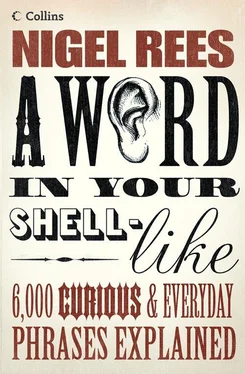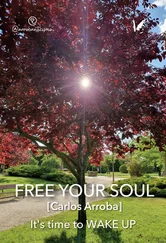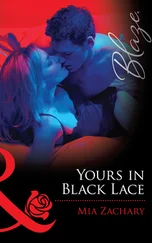(to) answer the call of natureA lavatorial euphemism known since 1761 when Laurence Sterne’s Tristram Shandy had that someone ‘hearkened to the call of nature.’ ‘The calls of nature are permitted and Clerical Staff may use the garden below the second gate’ – Tailor & Cutter (1852). ‘Call of nature “sent [Robert] Maxwell overboard”…He would frequently get up in the middle of the night and found it more convenient, as a lot of men do on a boat, to relieve themselves over the side as it was moving’ – headline and text, The Independent (21 October 1995). There is also the variant, ‘(to) answer a certain requirement of nature.’ The call of the great outdoorsmay also be used in the same way. Originally the phrase ‘great outdoors’ was used simply to describe ‘great open space’ (by 1932).
(the) answer to a maiden’s prayerAn eligible bachelor – especially one who is young, good-looking and wealthy. Perhaps a Victorian coinage, now used only ironically or somewhat mockingly and also used in a wider sense to refer to anything one might have been searching for. There is an ancient tradition that maidens prayed to St Agnes (patron saint of virgins) on 20 January, in the hope of being granted a vision of their future husbands. Hence, the poem by John Keats, ‘The Eve of St Agnes’ (1820). ‘The Maiden’s Prayer’ was the translated title given to the piano solo popular in Victorian drawing-rooms, ‘Molitwa dziewicy’ by the Polish composer Thekla Badarzewska (1834–61). ‘Here, you Freshmen, Seniors, et al, is the answer to a maiden’s prayer’ – Mademoiselle Magazine (15 August 1935).
Anthea, give us a twirlSee DIDN’T HE DO WELL.
anxietySee AGE OF.
any colour so long as it’s blackAn expression used to convey that there is, in fact, no choice. This originated with Henry Ford, who is supposed to have said it about the Model T Ford that came out in 1909 and is quoted in his My Life and Work (written with Henry Crowther, 1922). Hill and Nevins in Ford: Expansion and Challenge (1957) have him saying: ‘People can have it any colour – so long as it’s black.’ However, in 1925, the company had to bow to the inevitable and offer a choice of colours. Dr Harry Corbett commented (1996): ‘Initially, the T model was available in several colours but…the early finishing technique was a carryover from the carriage industry and resulted in curing times of up to four weeks. This meant that huge numbers of cars had to be stored during the finishing process. From what I can gather, Ford changed to a faster drying product – which was only available in black – to rid himself of the warehousing difficulties.’
any gum, chum?Remark addressed to American GIs based in Britain during the Second World War. ‘Crowds of small boys gathered outside American clubs to pester them for gifts, or called out as American lorries passed: “Any gum, chum?” which rapidly became a national catchphrase’ – Norman Longmate, How We Lived Then (1971).
any more fer sailing?See BY GUM.
any more for the Skylark?The age-old cry of swarthy fishing-folk inviting seaside visitors to take a trip around the bay but now domesticated into a ‘generalised invitation’, as Partridge/Catch Phrases puts it. But how did it get into the language in the first place? A pamphlet (undated) entitled ‘Any More for the Skylark? The Story of Bournemouth’s Pleasure Boats’ by L. Chalk tells of a whole series of ‘Skylark’ vessels run by a certain Jake Bolson at that seaside resort from 1914 to 1947. There is, however, a much earlier source. A researcher at the Brighton Fishing Museum disclosed that a boat owner/skipper of those parts called Captain Fred Collins had owned many ‘Skylarks’ in his career. As he died in 1912, Collins was clearly ahead of the Bournemouth boats. Indeed, the Brighton Gazette had mentioned a ‘new pleasure yacht, “The Skylark”’ arriving from the builders in May 1852. The Gazette ’s earliest citation of the actual phrase ‘Any more for the Skylark’ occurs in the edition of 17 November 1928 (in an article concerning Joseph Pierce, who took over from Collins). This does not explain how the phrase caught on beyond Brighton (perhaps through a song or stage-show sketch?) The edition of 8 May 1948 placed it among other pleasure boat cries: ‘Brighton’s fishermen…will take their boats down to the sea and the summer season chorus of “Any more for the Skylark,” “Half-way to China,” “Motor boat going” and “Lovely ride out” will start again.’ A variation, all aboard the Skylark!, was apparently popularized by Noah and Nelly , an animated British TV children’s programme of the mid-1970s.
(is there/have you) any more, Mrs Moore?Elaborations of ‘any more?’, from the British music-hall song ‘Don’t Have Any More, Mrs Moore!’ – written by Castling & Walsh (early 1900s) and performed by Lily Morris.
anyone for tennis?This perkily expressed inquiry from a character entering through French windows and carrying a tennis racquet has become established as typical of the ‘teacup’ theatre of the 1920s and 30s (as also in the forms who’s for tennis?and tennis, anyone?). A clear example of it being used has proved elusive, however, although there are many near misses. The opening lines of Part II of Strindberg’s Dance of Death (1901) are (in translation): ‘Why don’t you come and play tennis?’ A very near miss occurs in the first act of Shaw’s Misalliance (1910) in which a character asks: ‘Anybody on for a game of tennis?’ Teddie in Somerset Maugham’s The Circle (1921) always seems on the verge of saying it, but only manages, ‘I say, what about this tennis?’ Myra in Noël Coward’s Hay Fever (1925) says, ‘What a pity it’s raining, we might have had some tennis.’ Perhaps it is just another of those phrases that was never actually said in the form popularly remembered. Unfortunately, a terrible wild-goose chase was launched by Jonah Ruddy and Jonathan Hill in their book Bogey: The Man, The Actor, The Legend (1965). Describing Humphrey Bogart’s early career as a stage actor ( circa 1921) they said: ‘In those early Broadway days he didn’t play menace parts. “I always made my entrance carrying a tennis racquet, baseball bat, or golf club. I was the athletic type, with hair slicked back and wrapped in a blazer. The only line I didn’t say was, ‘Give me the ball, coach, I’ll take it through.’ Yes, sir, I was Joe College or Joe Country Club all the time.” It was hard to imagine him as the originator of that famous theatrical line – “Tennis anyone?” – but he was.’ It is clear from this extract that the authors were merely adding their own gloss to what Bogart had said. Bartlett (1968) joined in and said it was his ‘sole line in his first play’. But Bogart (who died in 1957) had already denied ever saying it (quoted in Goodman, Bogey: The Good-Bad Boy and in an ABC TV documentary of 1974 using old film of him doing so). Alistair Cooke in Six Men (1977) is more cautious: ‘It is said he appeared in an ascot and blue blazer and tossed off the invitation Tennis, anyone?’ – and adds that Bogart probably did not coin the phrase. In British show business, it has been suggested that Leon Quatermaine, a leading man of the 1920s and 30s, was the first man to say it. In the form ‘Anyone for tennis?’ the phrase was used by J. B. Priestley as the title of a 1968 television play, and in 1981 it was converted into Anyone for Denis? by John Wells as the title of a farce guying Margaret Thatcher’s husband.
Читать дальше












